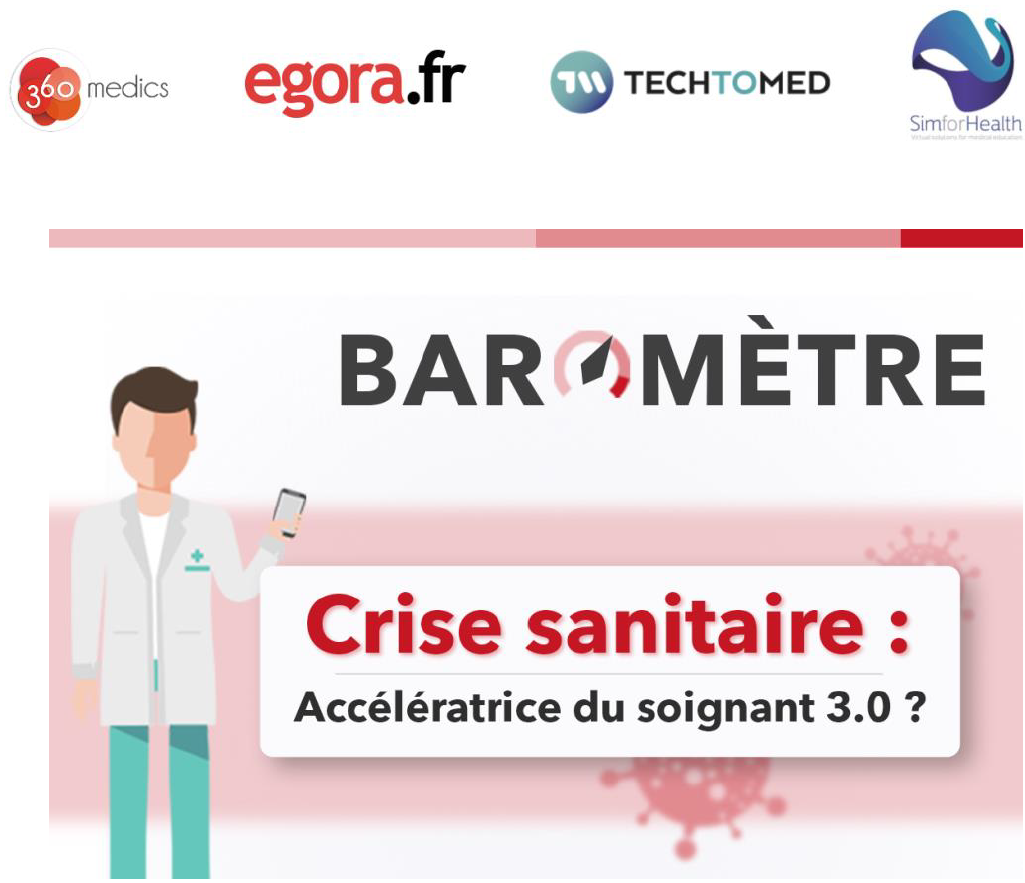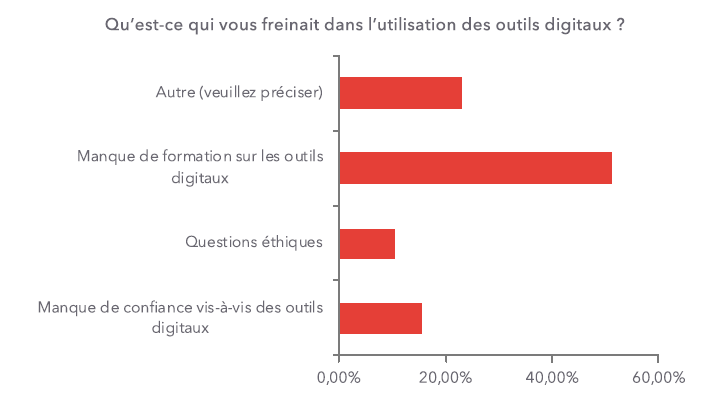[ad_1]
The digital uses of healthcare professionals have accelerated with the health crisis. Decryption with the barometer unveiled by 360medics in partnership with Egora, Techtomed and SimforHealth.
This national barometer, carried out among 2,400 health professionals, measures the impact of the COVID-19 health crisis on the digitalization of the practice of caregivers.
First observation: digital technology has experienced a real boom with the crisis and is now anchored in the practice of all health professionals:
- 87% of doctors have used at least one digital tool in their practice since the health crisis, whereas they were 79% before the crisis
- Out of all caregivers, they are now 81% to use at least one digital tool as part of their practice, against 78% before the crisis.
- Among caregivers under 45, the increase is more marked with + 6% (81% vs 75% before the crisis)
For the 19% of caregivers who do not use digital tools, the first obstacle is the lack of training.
An evolution of uses and needs
The increase in uses is observed for all tools without exception. For tools with the lowest penetration before the crisis, the progression is the strongest: teleconsultation went from 13% to 33% (+ 20%), i.e. a quasi tripling of uses, followed by platforms for exchanges between colleagues from 26% to 39% (+ 13%). For the 3 tools most used before the crisis, we also observe a significant increase:
- Online medical journals and scientific publications, used by 71.6% of caregivers since the health crisis, have increased by 5.1%
- Mobile medical applications, used by 70.6% of healthcare professionals, have grown by 5%.
- The websites of learned societies and health institutions, used by 64.6% of respondents, increased by 8.4%.
Regarding the areas in which healthcare professionals need digital technology the most today, access to scientific information comes in 1st position (78.1%). In 2nd position, access to clinical and practical tools (70%) and in third position, exchanges between colleagues (49%).
Generalized trust
Regarding the level of trust in these tools, 80% of caregivers now say they trust digital, an increase of 26%.
Confidence so growing that they are now 63.8% to use digital tools for training, information or prescription assistance during the consultation, in full view of the patient.
Beyond the trust placed by caregivers in digital tools, they are 48.5% to believe that these have a positive impact on the practice of the clinical examination.
Regarding the caregiver-patient relationship, 24.5% of respondents say that it has improved thanks to the use of digital tools, against 14.2% who say that it has deteriorated. It remained stable for 58.5% of caregivers.
Finally, overall, 88% of caregivers believe that digital tools will have a positive long-term impact (> 10 years).
 Methodology of the survey
Methodology of the survey
The survey was carried out on the basis of a self-administered questionnaire on the web with the community of health students and practicing health professionals. 360 medics from 04 to 29 January 2021. 2400 respondents were taken into account. Among the respondents:
- 40.8% doctors, 33.8% nurses, and 5.6% pharmacists, 19.8% from other health professions.
- 34.2% are between 25 and 45 years old, 11.2% of them are under 25 years old and 54.6% of them are over 45 years old.
Source: 360medics
Similar articles
[ad_2]










